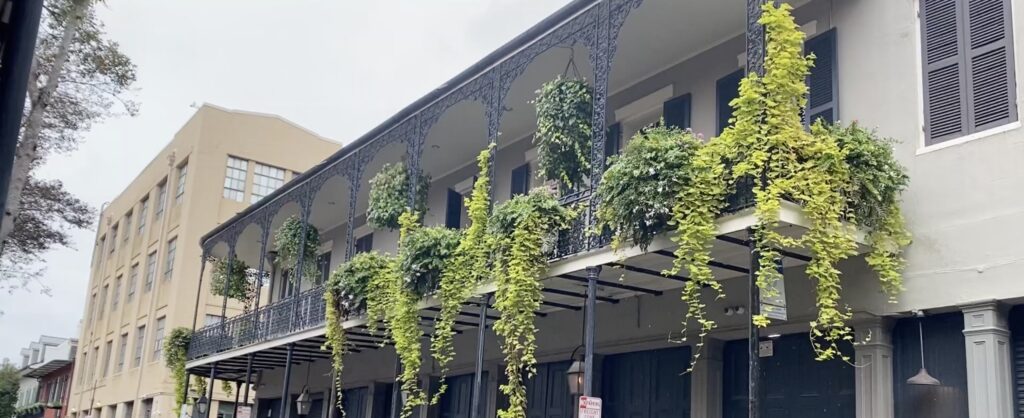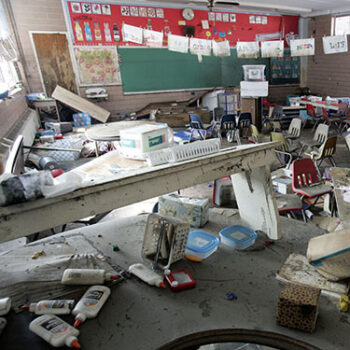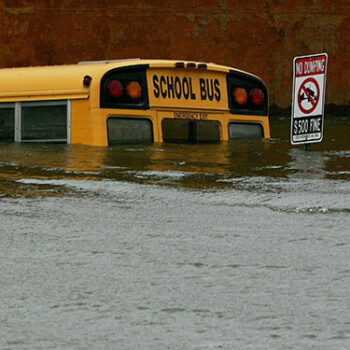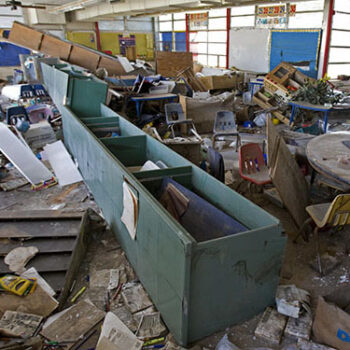This August marks 20 years since Hurricane Katrina devastated the Gulf Coast, forever altering the landscape of New Orleans and the lives of its residents. The storm made landfall on August 29, 2005, breaching levees, flooding neighborhoods, and displacing hundreds of thousands of people. Among those hit hardest were school-aged children, who found themselves suddenly without homes, classrooms, or the routines that once gave them a sense of stability.
In the immediate aftermath of the storm, the city’s public education system was in shambles. Of New Orleans’ 128 public school buildings, 100 were destroyed or rendered unusable. The 2005–2006 school year came to a standstill. By November 2005, fewer than 10 schools had reopened. By December of the following year, just 55 public schools were operating- less than half of the city’s original total.
It wasn’t just the physical infrastructure that changed, the state of Louisiana took control of most of the city’s public schools. This move began a sweeping, and controversial, transformation of the city’s education system. All educators were fired, and the union contract was allowed to expire. Almost all attendance zones were eliminated so that families, in principle, could choose any publicly funded school in the city.
- (Photo by Chris Graythen/Getty Images)
- (Photo by Ethan Miller/Getty Images)
- (Photo credit PAUL J. RICHARDS/AFP/Getty Images)
This new system brought both opportunities and challenges. Supporters pointed to academic gains and increased school choice for families. Critics raised concerns about equity, oversight, and long-term community involvement. What remained constant, however, was the need for ongoing support—especially for students from low-income families who were navigating trauma, poverty, and systemic change all at once.
It was during this pivotal time that Children Incorporated began its work in New Orleans.
In 2007 Ron Carter—our Assistant Director of Appalachian Programs and newly appointed Director of Urban Programs—was expanding Children Incorporated’s reach into urban areas. He had just launched our very first partnership with Communities In Schools in Richmond, Virginia, and saw a similar opportunity in Louisiana. Recognizing the urgent needs following the storm, Children Incorporated reached out to Communities In Schools of New Orleans, where he connected with then-Executive Director Sara Massey. After many thoughtful conversations and a thorough vetting process, Sara saw that Children Incorporated would be a reliable and compassionate partner in rebuilding student support systems.
Thanks to Ron’s dedication, Children Incorporated established its first affiliated site in New Orleans: Martin Luther King Jr. Elementary. This was quickly followed by additional school partnerships at four other schools, allowing us to support even more students through one of the most challenging periods in the city’s history.
Over the years, Children Incorporated has supplied essential resources such as school uniforms, shoes, hygiene products, rain gear, and books to students. These supports help reduce barriers so children can attend regularly and participate effectively. Through sponsorship and site-coordinator partnerships, Children Incorporated has provided winter coats, laptop computers, food deliveries, and even utility bill assistance to families. In one school, Children Incorporated helped students establish an edible garden, where children grew fruits and vegetables for cooking classes—housing hands-on learning, nutrition exposure, and teamwork.
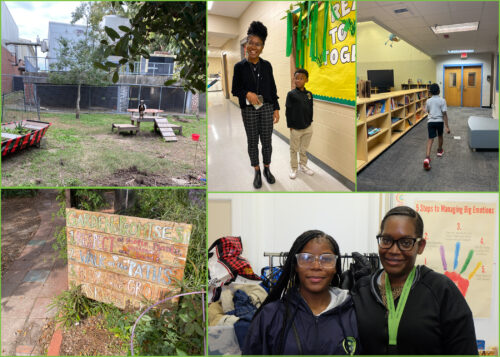
Today, we’re proud to continue that legacy through our ongoing partnership with Communities In Schools Gulf South.
By the end of the state takeover 13 years later, all of the city’s schools were converted to charter schools, and New Orleans schools were reunified into one district governed by the local school board and superintendent. By 2015, it became the first major U.S. city to have a school system composed entirely of charter schools. While the city’s school system has evolved dramatically over the last 20 years, one thing hasn’t changed: the need for consistent, personalized support for students who are overcoming the odds—both in school and in life.
As we reflect on the anniversary of Hurricane Katrina, we honor the resilience of New Orleans and the strength of its students, families, and educators. We also recognize the importance of long-term partnerships and the role each of us can play in building brighter futures—no matter what storms may come.
Citation Sources:
- NPR – New Orleans District Moves To All-Charter School System (2014)
- Tulane University News – The Education Reforms After Katrina
- The 74 – “Photo History: After Katrina, Devastation and Renewal Inside New Orleans’ Schools
- The New Orleans Post-Katrina School Reforms: 20 Years of Lessons
***
Want to be part of a story that’s still unfolding?
You can sponsor a child in one of three ways:
- call our office at 1-800-538-5381 and speak with one of our staff members
- email us at sponsorship@children-inc.org
- go online to our sponsorship portal and search for a child that is available for sponsorship.

